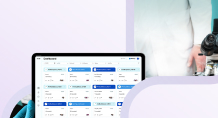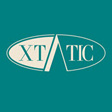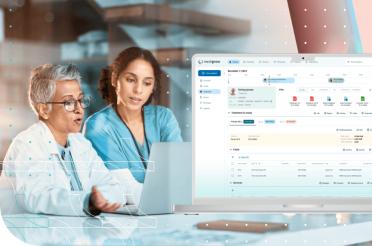An ECRF (electronic case report form) is the digital counterpart of traditional paper-based case report forms used in clinical trials. They serve as digital questionnaires completed by researchers to collect and report data from participants.
The transition from paper CRFs to eCRFs represents a shift towards more efficient technology-driven research methodologies in clinical trials.
What’s The Role of eCRF in Clinical Trials
The eCRFs streamline the data collection process by enabling the capture of high-quality, accurate, and comprehensive data.
They are designed to facilitate easy data entry, minimize errors, and support efficient data management. (2) This includes automated data capture from various sources, such as wearables and medical devices.
Contribution to clinical trial efficiency
The adoption of eCRFs contributes greatly to the efficiency and effectiveness of clinical trials. They facilitate quicker data analysis, enable easier monitoring of trial progress, and improve overall data quality.
Additionally, the integration of eCRFs with Electronic Data Capture (EDC) systems and other clinical research technologies enhances the ability to manage and analyze data effectively. This integration is a crucial step towards a more cohesive and comprehensive data management solution in clinical trials, moving towards a future of seamless, integrated clinical trial platforms.

Revolutionize the way you conduct clinical research.
Enhance your data collection and management process with eCRFs with the help of our experts.

eCRFs vs. Paper-based CRFs: A Comparison
Comparatively, eCRFs offer significant advantages over traditional paper CRFs.
Paper CRFs are labor-intensive, prone to data entry errors, and require substantial time for data processing and analysis. In contrast, eCRFs reduce operational costs, minimize manual errors, and speed up the data collection process.
They also allow for real-time data validation, ensuring that the data collected is accurate and complete. This efficient approach significantly reduces the time and resources needed for clinical trials, enhancing the overall quality of the data collected.
You can see the full comparison between eCRFs and their paper-based alternatives in the table below.
|
Aspect |
Paper CRFs (pCRFs) |
Electronic CRFs (eCRFs) |
|
Data accessibility |
Access to data is limited to physical location and requires manual handling & sorting. |
Data can be accessed remotely and in real-time, which enhances flexibility & oversight. |
|
Data Security |
Physical storage is vulnerable to damage, loss, and unauthorized access while security depends on physical measures. |
Enhanced security with encrypted data transmission, cloud storage, and user access controls. |
|
Cost |
Higher long-term costs due to high error rates and manual data re-entry. The average cost per patient tends to be higher. |
Lower long-term costs with automatic data validations reducing errors. The average cost per patient islower. |
|
Regulatory Compliance and Data Standards |
Must adhere to regulatory standards and guidelines. Challenges include maintaining consistency and avoiding errors during manual data entry and transfer. |
Also adhere to regulatory standards, with advantages in built-in validation rules and audit trails enhancing data integrity. Compliance of the eCRF system is mandatory. |
|
Patient and Researcher Interaction |
Often require face-to-face interaction, providing opportunities for rapport building and clarifying doubts, but may limit participation. |
Reduce the need for in-person visits, increasing convenience and participant pool, but may reduce direct interaction between researchers and participants. |
Regulatory requirements for eCRFs in clinical trials
Electronic Case Report Forms in clinical trials are governed by a complex regulatory framework. The process is designed to ensure data integrity and compliance with standards set by regulatory bodies like the FDA.
The design and implementation of eCRFs must adhere to these regulations, with a focus on establishing a clear hypothesis and statistical analysis plan for the clinical trial.
Compliance with FDA and international bodies
You need to ensure that eCRFs capture all required data elements, like medical history, in a manner that supports the reliability and accuracy of the trial results. The use of eCRFs should meet the specifications set forth in the study protocol and align with regulatory guidelines.
Proper validation documentation, including a data validation plan and CRF/eCRF matching report, is essential to demonstrate compliance and to ensure the eCRFs are correctly configured for the trial.
Ensuring data integrity with eCRFs
еCRFs contribute to clinical data management and integrity in clinical trials by providing a secure, digital method for data collection. This includes the use of encryption, access limits, and audit trails to protect sensitive participant data.
With the digitization of data, eCRFs must have robust security mechanisms to prevent data breaches or unauthorized access, which are critical for maintaining ethical and legal standards in clinical research.

Explore the benefits of using eCRF in your clinical trials.
Understand the key features and functionalities of the various eCRF software solutions.
Benefits of using eCRFs in clinical trials
The main benefits of electronic case report form in clinical studies and trials can be summed up as follows:
- Enhanced data quality: An effective eCRF improves data quality significantly. It has built-in logic checks and validation rules that detect discrepancies and reduce errors during data entry. This ensures real-time data validation and a higher level of accuracy compared to paper-based forms.
- Cost savings: Replacing paper-based systems with digital eCRFs leads to considerable cost reductions. This is noticeable in various aspects such as the elimination of expenses related to printing and the reduced need for personnel to manage data. Moreover, the digital approach facilitates data transfer and analysis, further reducing operational costs.
- Time efficiency: eCRFs save a considerable amount of time in clinical trials. The digital forms streamline data collection and validation processes, thereby accelerating the overall clinical trial timeline. This efficiency is particularly evident in data cleansing and error management, where eCRFs automate much of the process.
- Standardization and reusability: eCRFs allow for the standardization of data collection processes across different trials. They can be saved as templates and reused in multiple studies, thereby reducing the workload and enhancing comparability between studies.
Last but not least, the increasing digitization in clinical research is well-supported by eCRFs. They facilitate decentralized clinical trials and integrate well with wearable technology and other digital health tools, enabling more comprehensive and real-time patient monitoring.
Things your organization needs to consider when using eCRFs in clinical trials
The adoption of electronic Case Report Forms (eCRFs) in clinical trials comes with several challenges.
One of the primary issues is related to technical aspects and infrastructure. Implementing eCRFs often encounters technical difficulties like system downtime, slow response times, and problems with data synchronization. To avoid having such problems you need stable internet connectivity, especially if your organization will operate in regions with inadequate infrastructure. (4)
Alongside these technical hurdles, there’s the critical concern of data privacy and security. As eCRFs digitize participant information, the responsibility to safeguard this sensitive data intensifies. To better prepare for such a challenge, you need to take stringent security measures. Those include encryption and robust access controls to comply with data protection regulations. (1)
Moreover, integrating eCRFs with other clinical research tools, like electronic health records or laboratory information systems, often can become quite tricky. Addressing these integration issues is crucial for ensuring seamless data flow and effective management within the clinical trial process.
To overcome this challenge you need to be sure that the way you collect and store patient data is consistent throughout the process. This aspect of data handling is crucial if you want to integrate eCRFs successfully.
Lastly, the cost of the initial investment in eCRFs can be high. While eCRFs are known to reduce costs over time, the upfront expenditure on clinical trial software and hardware can pose a financial hurdle for some pharmaceutical companies and teams. This expense often deters teams from adopting eCRFs, despite their long-term benefits.
Each of these challenges underscores the need for careful planning and resource allocation when implementing eCRFs for your clinical trials.
What would the perfect step-by step process for you?
To ensure quality data, reliability, and compliance for your clinical trial team, your tech partner is expected to go through several important steps with you.
Step 1: Structure eCRF effectively
Firstly, a great tech partner should be able to organize eCRFs into right-sized forms, ideally containing 10-20 questions that directly relate to your research hypothesis. In BGO’s experience this approach has facilitated better focus and reduced data redundancy.
They should also use naming forms based on topics (ex. inclusion or exclusion criteria) which aids in the easy identification and completion of specific questions by the clinical team.
Step 2: Train your clinical staff
BGO software experts consider that this training should be essential, especially for staff accustomed to paper-based CRFs. Hands-on training sessions include activities like configuring a training study and responding to queries.
This step ensures that everyone involved in data collection is well-versed with the EDC system and eCRF design is vital for the effective use of eCRFs in the study.
Step 3: Invest in user-friendly design
By investing in an experienced tech partner means that you are also making sure you get a user-friendly design for your clinical trial. The design of eCRFs should prioritize the customer and facilitate its easy use.
This includes intuitive interfaces, simple navigation, and clear labeling of form elements. A good partner will ensure that each study’s unique requirements are met by using customizable forms that cater to the specific needs of different clinical trials.
Step 4: Emphasize data collection consistency
For consistency in data collection, it’s important for the tech partner you choose to know how to group related information and utilize a pre-defined digital questionnaire instead of free-text questions. This not only streamlines data entry but also reduces the need for data cleaning later on.
For example, using multiple-choice questions with defined answers helps collect quantifiable data more effectively.
Step 5: Take into account the clinical workflow and human factors
It’s extremely important to account for clinical workflow and human interactions with devices while designing eCRFs. That allows for fast and effective data input during the clinical workflow and can significantly impact the study’s success.
This includes considering how human factors affect data analysis and incorporating them into the eCRF design.
Step 6: Test eCRFs
Before going live, you and the tech partner you choose to work with should thoroughly test the eCRF to validate their functionality, logic, and user experience. This includes ensuring that data elements such as form labels, digital questionnaires, and general forms are correctly set up.
This also includes making sure that edit checks are in place to verify data accuracy.
Future trends and innovations
Collecting data for clinical study reports is nowadays heavily influenced by emerging technologies. Below, you can see the key innovations that reshape the field of eCRF data.
Adoption of AI and advanced analytics
The use of artificial intelligence (AI) and advanced analytics is set to affect eCRFs. AI algorithms can be applied to the large datasets generated by eCRFs, enabling insights that were not possible with traditional paper-based methods.
AI can assist in patient categorization, treatment response forecasting, and risk assessment, potentially accelerating medication development and paving the way for more targeted therapies.
Decentralized clinical trials
The shift towards decentralized trials allows for more patient-centered study designs and remote data collection.
Technologies like telemedicine and remote monitoring facilitate patient participation from home, making clinical trials more accessible and efficient. This approach reduces the need for physical site visits, thereby saving time and costs.
Conclusion
In conclusion, the introduction of eCRFs in clinical trials marks a significant leap forward from traditional paper-based methods.
One of the most notable benefits of eCRFs over their paper counterparts is the dramatic reduction in data entry errors. By digitizing the data collection process, eCRFs ensure higher accuracy and reliability of the data collected.
This is especially crucial in clinical trials where the integrity of data directly impacts the outcome and validity of the research. The implementation of eCRFs streamlines the data management process, from collection to analysis so it enhances the efficiency and effectiveness of clinical trials.
Despite the challenges and initial investment required, the long-term benefits of improved data quality, time-saving, and overall trial efficiency make eCRFs an invaluable tool in modern clinical research.
As a result, eCRFs are likely to play a pivotal role in shaping the future of clinical trials, making them more adaptive, patient-centric, and aligned with the advancements in digital health technologies.

Whether you’re a startup, a Fortune 100 company or a government organisation, our team can deliver a solution that works for you.
BGO Software

















